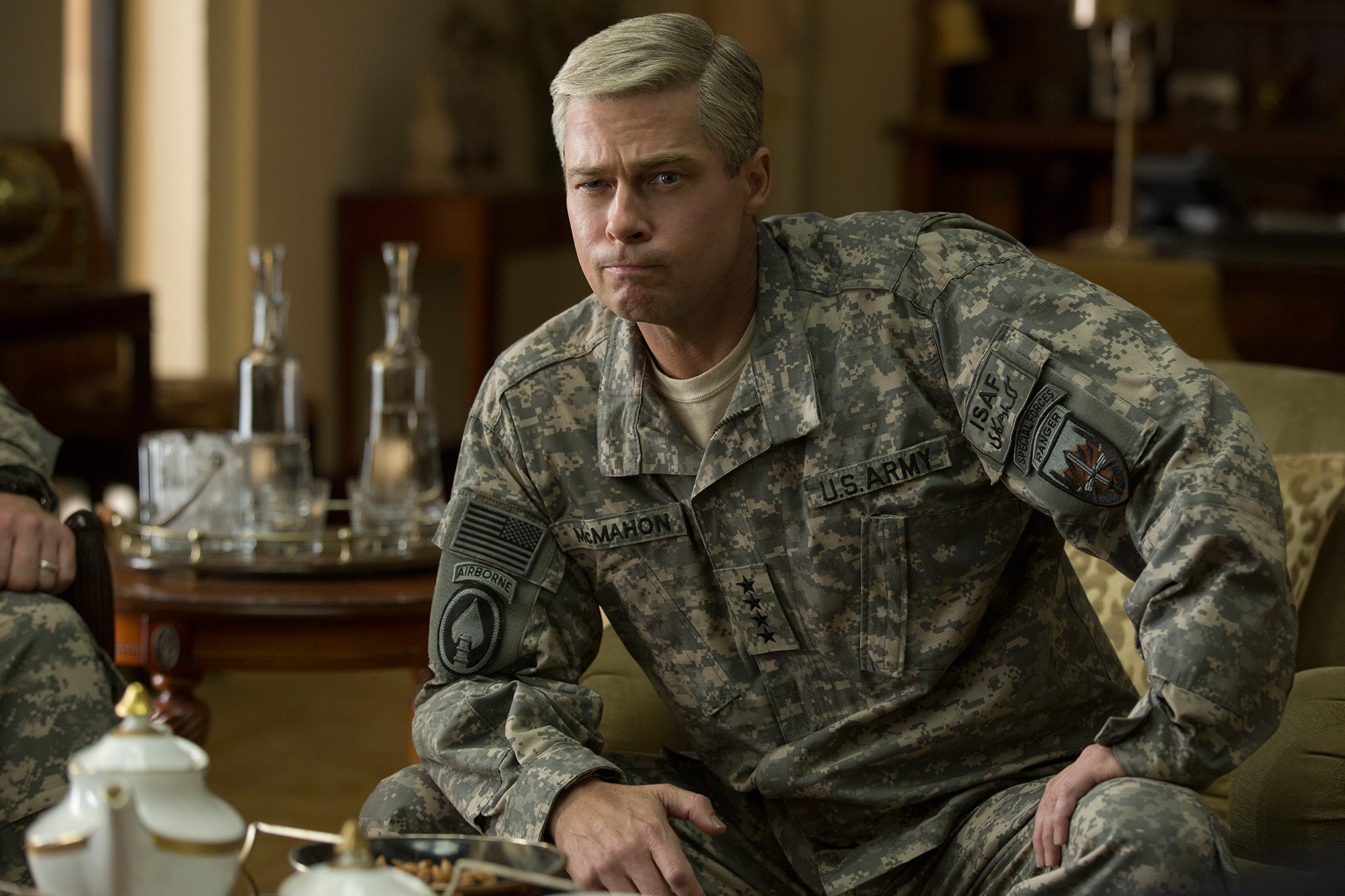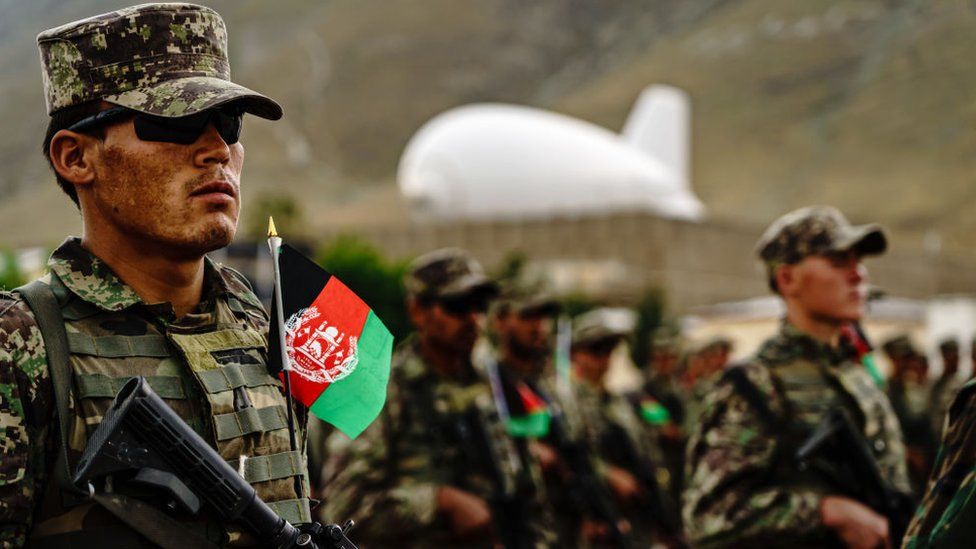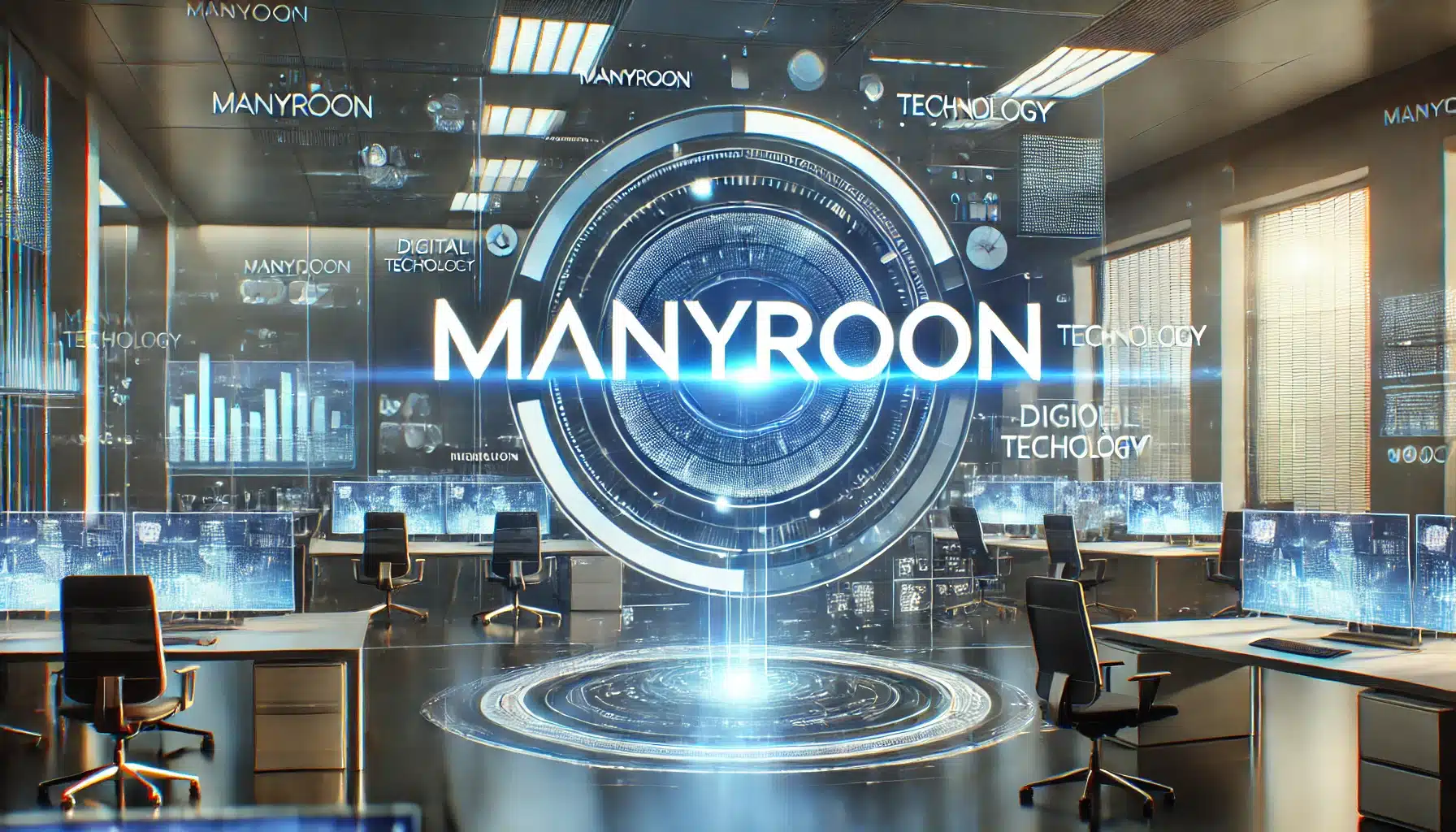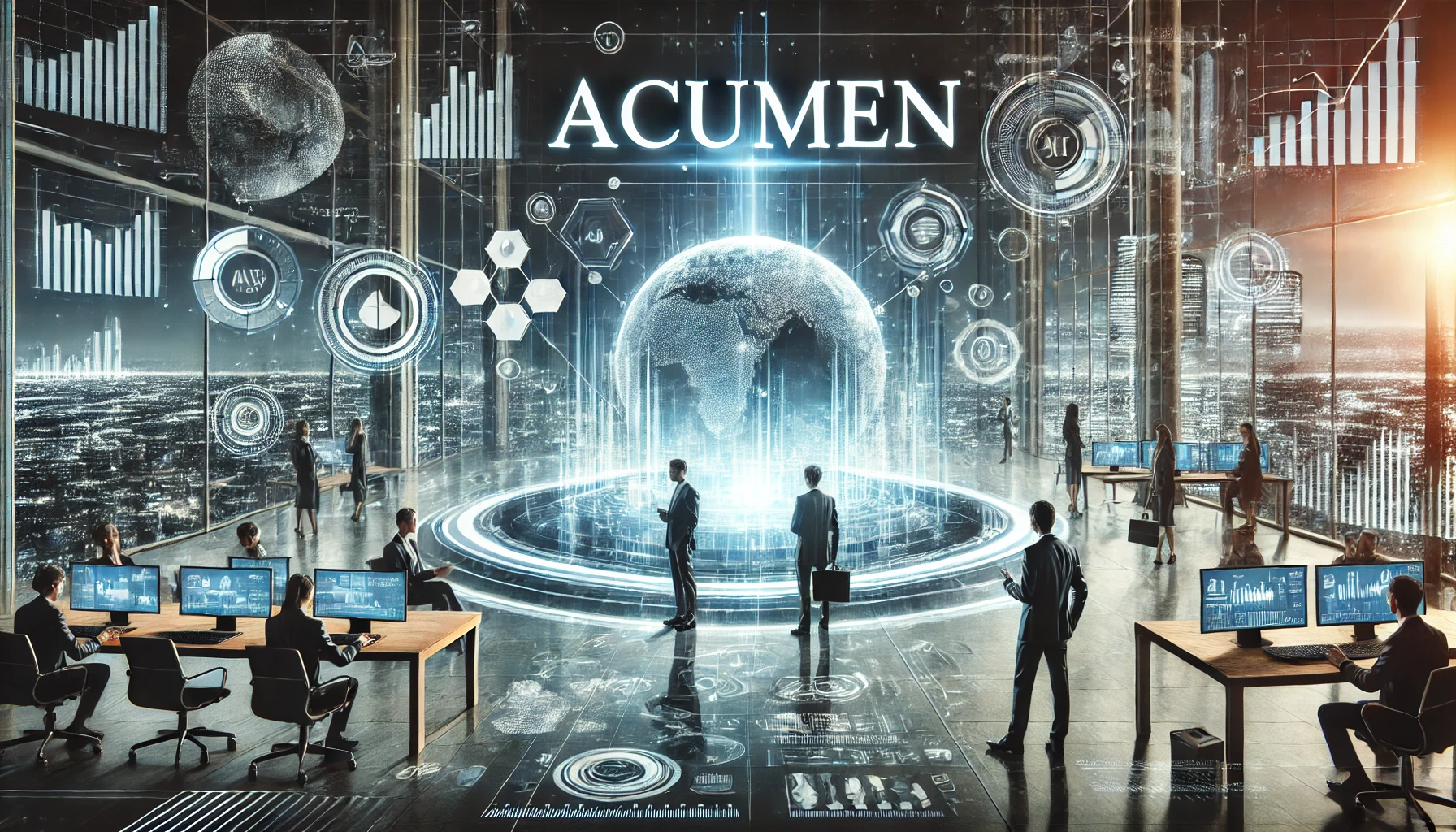Entertainment
‘War Machine’ is based on a true story.

Table of Contents

President Barack Obama requested General Stanley McChrystal, the commander of US and NATO forces in Afghanistan at the time, to retire on June 23, 2010. A feature of McChrystal had been published in Rolling Stone the day before. McChrystal and some of his top advisers spoke honestly about their displeasure with the White House’s approach to Afghanistan in the report, which was authored by the late journalist Michael Hastings. Not only did the report catch McChrystal’s team openly criticizing the White House, but it also provided a rare inside look at how the country’s most powerful commanders were thinking about the country’s longest-running war.
Now, David Michôd‘s new Netflix film War Machine, based on Hastings’ book The Operators: The Wild and Terrifying Inside Story of America’s War in Afghanistan, satirizes these hard-hitting generals and their rationale. Brad Pitt plays Gen. Glen McMahon, a figure based on General Stanley McChrystal. Michôd spoke with Men’s Journal on the never-ending war in Afghanistan, why the Rolling Stone piece may have been the final straw in an already doomed relationship, and whether or not he believes Hastings was slain by the CIA.
How did you get interested in Afghanistan’s war?

This battle has lasted more than 16 years and cost a staggering amount of life and cash. I wanted to know how we could continue to justify the expense as a society. What was the strategy for keeping the battle going? And how did we all seem to believe in this enormous illusion at the same time?
You’ve stated that reading Hastings’ book changed your perspective on the Afghan conflict. What did it reveal to you that you hadn’t previously noticed?
It provided me with a route. In my hunt for a movie, I had done a lot of reading on the wars in Iraq and Afghanistan, and none of it made sense. These activities appear to be based on illusion, an attempt to militarily achieve something that was always going to be unattainable. However, I couldn’t figure out why. I couldn’t comprehend how this could be occurring – how an institution managed by allegedly intelligent and capable individuals could be involved in such irrational behaviors. Michael’s book was the first book I’d read that explained the human psychology of the people who designed these massive military projects.
What was the reasoning for changing Stanley McChrystal’s name to Glen McMahon?
I wanted the film to be about something bigger than simply one man’s tale. I also didn’t want the film to turn into a Stanley McChrystal biography. I didn’t want it to seem like it was limited to a single event or a single individual or group of men. It was always about the institution as a whole to me. To me, the vanity and ambition at the heart of the film weren’t unique to these characters. It’s ingrained in the DNA of this institution’s authority.
What was it about these people that drew you in?
The pride, ambition, and arrogance that come with reaching the top of a ladder-like this aren’t exclusive to the military. So many of us, I believe, are climbing ladders of our own personal ambitions. What’s alarming is how disastrous the implications of such vanity and ambition in such a strong institution as the military can be.
Why do you believe McChrystal had a conversation with Michael?
When you’re losing control of a conflict that appears to have no end in sight, it’s understandable that you’d want to do all you can to gather and reaffirm public support for your efforts. It may be necessary to speak with folks from many walks of life at times. But, when you look at Michael‘s tale and what those individuals were saying and doing, there are obvious failures in judgment, but no great criminal actions are being perpetrated. “The only reason these people failed is that they talked to a Rolling Stone reporter,” the film does not state. The Rolling Stones’ tale was merely the last nail in an already-built coffin.
What was the shape of that coffin?
In order to keep waging this war, the institution, or these men, needed to start engaging in counterinsurgency deception. The misconception is that they could bring peace and goodness to this country by invading it and occupying it with all the resources of a fearsome military arsenal. The boys’ attempt in this film was always doomed to fail. But, most importantly, how was it going to collapse in the end?
What are your thoughts on the CIA’s alleged assassination of Michael Hastings?
I don’t seem to fit in anywhere. The world is a strange place, and Michael was a difficult individual. As a result, I haven’t even attempted to reach any conclusions of my own.

Gaming
Holiday Table W101: Complete Guide to Festive Decorations

Table of Contents
The Holiday Table W101 is a special in-game furniture item designed to bring a festive and joyful atmosphere to players’ homes. Whether you are decorating for a seasonal event, hosting a party, or simply enjoying the magical ambiance of the game, the Holiday Table is a wonderful addition to any wizard’s home. This article provides a detailed yet easy-to-understand guide on the Holiday Table, including its types, how to obtain it, and why it is a popular choice among players.
Different Types of Holiday Tables in Wizard101
There are two primary versions of the Holiday Table in Wizard101:
Festive Table
- The Festive Table is the most well-known version of the Holiday Table.
- It was first introduced as part of the 12 Days of the Spiral event, celebrating the winter holiday season.
- This table features a colorful, festive design that complements winter-themed home decorations.
Desert Festive Table
- The Desert Festive Table is another variation with a different visual style, inspired by desert-themed environments in the game.
- While it still serves the same interactive purpose, its design is more suited for homes based in Krokotopia or other desert-like regions.
Both versions serve as great additions to any Wizard’s home, and many players collect them to match different themes and styles.
How to Obtain the Holiday Table
There are multiple ways to get a Holiday Table in Wizard101. Some methods require Crowns, while others allow players to obtain them through gold purchases or boss drops.
How to Get the Festive Table
- Available for purchase in the Crown Shop for 2,200 Crowns.
- It was also included in the Yuletide Party Mega Bundle, which was priced at 8,500 Crowns during the event.
- Sometimes, it may return to the Crown Shop during holiday promotions.
How to Get the Desert Festive Table
- Can be bought from Jihane Abletusk for 400 Gold, making it much more affordable compared to the Festive Table.
- It is also a possible boss drop from Captain Hockins, giving players a chance to earn it through battles instead of purchasing it.
Interactive Features of the Holiday Table
Unlike many other decorative items, the Holiday Table in Wizard101 has interactive capabilities. Here’s why it’s unique:
- It can seat up to four Wizards, allowing players to sit around it like in a real gathering.
- Players use it for in-game parties, role-playing, and social meetups.
- It fits well in holiday-themed houses, helping create a cozy winter or festive setting.
- The Desert Festive Table offers a unique look that blends well with certain home themes like Krokotopian or Mirage-style houses.
This interactive element makes the Holiday Table more than just decoration—it becomes a social hub in the game.
Importance of the Holiday Table in Wizard101
The Holiday Table is more than just an item; it adds personality, warmth, and functionality to a Wizard’s home. Here are a few key reasons why many players want to own one:
- Perfect for Seasonal Decorations – Many Wizards enjoy themed home decoration, and the Holiday Table plays a big part in this.
- Great for Social Gatherings – Since it allows Wizards to sit together, it helps create fun role-play moments or party settings.
- Rare and Collectible – Some versions of the table are limited-time items, making them desirable for collectors.
- Enhances Home Design – Whether placed inside a winter lodge or a desert retreat, the table improves a home’s aesthetic.
Seasonal Events and Availability
The Holiday Table is often tied to special in-game events. These events make the table temporarily available for purchase or as a reward.
- Winterfest & Yuletide Event – The Festive Table usually returns to the Crown Shop during these winter-themed events.
- Limited-Time Sales – Occasionally, the table may be part of a holiday bundle or sale.
- Boss Drops & NPC Sales – The Desert Festive Table can be obtained anytime from Jihane Abletusk or Captain Hockins.
Since the Festive Table is not available year-round, players must keep an eye on seasonal events if they want to add it to their collection.
Collecting and Trading the Holiday Table
For players interested in collecting rare and seasonal items, the Holiday Table is a great option.
- The Desert Festive Table is tradeable and auctionable, meaning players can sell or trade it with others.
- The Festive Table, however, is usually a Crowns-only purchase, making it more exclusive and not available for trade.
Many housing decorators and collectors seek out these tables to enhance their in-game homes. Players who have extras may trade them for other rare decorations.
Conclusion
The Holiday Table W101 is a valuable addition to any home, bringing festive charm and interactive fun to players. Whether you obtain the Festive Table during holiday events or purchase the Desert Festive Table for gold, both versions provide a unique social and decorative experience.
With seasonal availability, limited-time offers, and interactive seating features, the Holiday Table remains a fan-favorite housing item in the game. If you enjoy decorating, socializing, or collecting special items, this table is a must-have for your Wizard101 home.
FAQs
Can I use the Holiday Table to invite NPCs to sit?
No, the table only allows real players (Wizards) to sit, making it a social item for multiplayer interaction.
Is the Holiday Table available year-round?
The Festive Table is only available during holiday events, but the Desert Festive Table can be obtained anytime.
Can I customize the Holiday Table’s appearance?
No, its design is fixed, but you can place it in different themed houses to match your decorations.
Does the Holiday Table have any hidden features?
No special mechanics, but it adds a cozy, interactive seating area where Wizards can sit together.
Can I trade the Holiday Table with other players?
The Desert Festive Table is tradeable, but the Festive Table (Crown version) is not.
Entertainment
Showbizztoday.com Showbizztoday: Your Source for Movie Reviews and TV Updates

Table of Contents
Showbizztoday.com is a popular online platform dedicated to keeping readers informed about everything happening in the world of entertainment. Whether you are a fan of movies, TV shows, music, or celebrity gossip, Showbizztoday.com offers a wide range of content to keep you up to date. The website strives to be your go-to source for entertainment news, providing timely updates and insights into the ever-changing world of pop culture.
The mission of showbizztoday.com showbizztoday is simple: to offer high-quality, reliable content that caters to the interests of entertainment lovers. The platform seeks to make sure that its readers are always in the loop with what’s trending in the industry.
Main Features of Showbizztoday.com
Comprehensive Coverage of Entertainment
Showbizztoday.com covers all aspects of the entertainment world, ensuring there’s something for everyone:
- Movies: From the latest box office hits to behind-the-scenes stories, Showbizztoday.com gives you the inside scoop on upcoming films, star interviews, and film reviews.
- TV Shows: The site tracks the most popular TV shows, offering updates on new seasons, episode reviews, and cast interviews.
- Music: Whether it’s a new album release or news about an upcoming concert, Showbizztoday.com provides coverage on the latest happenings in the music world.
- Celebrity Gossip: The website also keeps fans up to date on the latest rumors, scandals, and exclusive celebrity interviews.
User-Friendly Layout
Navigating Showbizztoday.com is easy and intuitive. The site is designed for an enjoyable browsing experience, with a clean layout that lets users quickly find articles by category—whether you’re looking for the latest movie news or celebrity updates.
Trending Topics
To keep readers informed on the hottest topics, Showbizztoday.com highlights the latest trends in entertainment. This feature makes sure you’re always in the know about the industry’s biggest news and moments.
Celebrity Gossip and News
One of the highlights of Showbizztoday.com is its in-depth coverage of celebrity news and gossip. Fans can find the latest exclusive interviews with stars, giving them a glimpse into the lives and careers of their favorite celebrities.
The site also keeps readers informed about rumors and scandals in Hollywood. Whether it’s a new relationship, an ongoing drama, or a major life change, Showbizztoday.com is quick to report the news. Additionally, the site runs regular features on rising stars and well-known celebrities, giving insight into their careers, personal lives, and future projects.
Movies and TV Shows
Showbizztoday.com offers extensive coverage of both the film and television industries. When it comes to movies, the website provides news about upcoming releases, box office results, and film reviews. It’s a great resource for moviegoers who want to stay up to date on what to watch next.
For TV fans, Showbizztoday.com tracks the latest episodes, season premieres, and finales, keeping readers engaged with in-depth episode reviews and the latest casting announcements. The website covers both mainstream hits and under-the-radar gems, making it a valuable resource for anyone who loves television.
Music News and Trends
Music enthusiasts will appreciate Showbizztoday.com’s coverage of the music world. The site regularly updates fans about new album drops, singles, and music videos from top artists and rising talents. For those who follow live performances, Showbizztoday.com also reports on concert schedules and music festivals.
The site doesn’t stop there—it also follows trends in the music industry, from viral hits to shifts in popular genres. Whether you’re interested in pop, rock, hip-hop, or indie music, Showbizztoday.com provides timely and relevant information.
Showbizztoday.com Community Engagement
User Interaction
Showbizztoday.com values its readers and encourages interaction. Through comments, polls, and social media, the site keeps the conversation going, allowing fans to share their thoughts on the latest entertainment news. This engagement helps foster a sense of community among readers.
Exclusive Content
In addition to regular articles, Showbizztoday.com offers exclusive content, such as behind-the-scenes looks, early reviews, and interviews with industry professionals. This makes it a valuable platform for those who want insider access to entertainment news.
Showbizztoday.com Across Social Media
Showbizztoday.com doesn’t just exist on its website—it’s also highly active on various social media platforms, including Facebook, Instagram, Twitter, and YouTube. These platforms allow followers to get real-time updates on the latest entertainment stories, making it easier for readers to stay up to date on breaking news.
By engaging with fans on social media, Showbizztoday.com also opens up the conversation, responding to comments and sharing user-generated content. This strengthens the connection between the site and its audience.
Website Accessibility and Mobile Compatibility
In today’s digital age, accessibility is key, and Showbizztoday.com has made sure its site is mobile-friendly. Whether you’re at home or on the go, you can access the latest entertainment news from your smartphone, tablet, or computer. The website’s responsive design adapts to various screen sizes, ensuring an optimal experience for all users.
Advertising and Partnerships
Showbizztoday.com also partners with brands and businesses in the entertainment industry to offer advertising opportunities. These collaborations help bring fresh content and relevant advertisements to the site’s readers. Additionally, Showbizztoday.com works closely with publicists, movie studios, and other industry players to bring breaking news and exclusive stories to its audience.
Conclusion
Showbizztoday.com is more than just an entertainment website—it’s a community where fans can stay informed and connected to everything happening in the world of movies, TV, music, and celebrity culture. Whether you’re a casual viewer or a die-hard fan, showbizztoday.com showbizztoday offers the news, insights, and exclusives you need to stay updated. So, if you want to keep up with all the latest trends and happenings in the entertainment world, Showbizztoday.com is the perfect place to start!
FAQs
What type of content does Showbizztoday.com cover?
Showbizztoday.com covers a wide range of entertainment topics, including movies, TV shows, music, celebrity news, and industry trends.
Can I interact with the content on Showbizztoday.com?
Yes, Showbizztoday.com encourages reader interaction through comments, polls, and active social media engagement.
Is Showbizztoday.com accessible on mobile devices?
Absolutely, Showbizztoday.com is mobile-friendly, offering a seamless experience across smartphones, tablets, and desktops.
How often is Showbizztoday.com updated with new content?
Showbizztoday.com is regularly updated with fresh articles, reviews, and breaking news to keep readers informed in real-time.
Does Showbizztoday.com feature exclusive content?
Yes, the site offers exclusive interviews, early reviews, and behind-the-scenes content that can’t be found elsewhere.
Gaming
NFTRandomize: The Future of Unique NFT Creation

Table of Contents
NFTs (Non-Fungible Tokens) have revolutionized digital ownership, allowing people to buy, sell, and trade unique digital assets. But what if NFTs could be even more unique, unpredictable, and exciting? That’s where NFTRandomize comes in.
NFT Randomize is a concept that brings randomness into NFT creation. Instead of manually designing each NFT, creators use algorithms to generate variations automatically. This process ensures that no two NFTs are identical, making them even more valuable and rare.
How NFTRandomize Works
NFTRandomize relies on blockchain technology and smart contracts to generate unique NFTs. Here’s how it works:
Defining Attributes
Creators set specific attributes that can be randomized, such as color, texture, background, patterns, or other design elements.
These attributes are programmed into a smart contract—a piece of code on the blockchain that automates transactions.
Randomization Algorithm
When an NFT is minted (created on the blockchain), a randomization algorithm selects attributes from predefined options.
This randomness ensures that each NFT in a collection is unique, while still fitting within a specific artistic theme.
Blockchain Verification
Once an NFT is generated, its unique characteristics are recorded on the blockchain, proving its authenticity and ownership.
This method is particularly useful for large-scale NFT collections, such as those with thousands of unique pieces, like the famous Bored Ape Yacht Club or CryptoPunks.
Applications of NFTRandomize
The power of randomization is transforming various industries within the NFT space. Here’s where it’s making an impact:
Digital Art
Artists are using NFTRandomize to create generative art collections—where each piece is automatically designed based on random variables.
- Example: An artist creates a base character and lets the algorithm change features like eye color, hairstyle, or accessories.
- Result: Every NFT is one-of-a-kind, giving collectors something truly unique.
Gaming
Games are a perfect fit for NFT Randomize because randomized NFTs can be used for weapons, character skins, items, and abilities.
- Example: A sword in a fantasy game could have randomly generated power levels, colors, or magical effects.
- Benefit: Players get exclusive in-game items with varying rarity, making gameplay more exciting.
Collectibles
Collectors love rare items, and NFT Randomize helps create NFT collectibles that feel special.
- Example: A trading card series where each card has a random combination of stats, backgrounds, and features.
- Effect: Collectors enjoy hunting for rare combinations, making the NFT more desirable.
Metaverse and Virtual Worlds
NFTRandomize is also making an impact in virtual real estate, avatars, and objects in the metaverse.
- Example: Virtual land in a metaverse game can have randomized landscapes, building styles, or hidden treasures.
- Why It Matters: Players and collectors get personalized digital spaces that stand out from others.
Benefits of NFTRandomize
Why is NFT Randomize such a big deal? It offers many advantages for creators, buyers, and the NFT industry as a whole.
Uniqueness – No two NFTs are the same, making them more valuable to collectors.
Surprise Factor – Buyers love the excitement of receiving a randomly generated NFT.
Scalability – Instead of manually designing thousands of NFTs, creators can automate the process.
Rarity and Value – Some random attributes may be rarer than others, increasing demand for certain NFTs.
Encourages Innovation – Artists and developers can push creative boundaries in new ways.
Tools and Technologies Behind NFTRandomize
Creating randomized NFTs requires specific tools and software. Here’s what makes it possible:
- Smart Contracts – These define the rules for randomization and ensure the NFT follows the programmed parameters.
- Randomization Algorithms – These determine which traits get assigned to each NFT.
- NFT Creation Platforms – Some platforms, like NFT Randomize plugins for Cinema4D, help artists automate the process while keeping control over design.
These tools simplify NFT creation while still allowing for artistic control.
Challenges of NFTRandomize
While NFTRandomize is an exciting development, it does come with challenges.
Quality Control – Randomized designs can sometimes create strange or unappealing results. Creators must ensure that every NFT still looks good.
Balancing Randomness and Structure – If an NFT collection is too random, it may lose its artistic identity.
Over-Saturation – With too many randomized NFTs, some collections may struggle to stand out in the crowded NFT marketplace.
Scalability Issues – Handling large-scale random NFT creation requires powerful computing resources.
Despite these challenges, NFT Randomize is being refined to improve quality and user experience.
NFTRandomize in the NFT Marketplace
How does NFTRandomize affect NFT sales and value?
Rare Traits Increase Demand – If a randomized NFT has a rare feature, collectors may be willing to pay more for it.
Higher Selling Potential – Unique, one-of-a-kind NFTs often command higher prices in the marketplace.
Engagement with Buyers – Randomization adds a fun element where buyers don’t know exactly what they’ll get, making NFT drops more exciting.
Platforms that use randomization, such as OpenSea, Rarible, and Foundation, have seen high demand for unique generative NFT collections.
The Future of NFTRandomize
NFTRandomize is still evolving, and its future looks promising. Here are some key trends to watch:
Integration with AI – Future NFTs may use artificial intelligence to create even more dynamic and intelligent randomization.
Expansion Beyond Art and Gaming – Sectors like fashion, real estate, and education could start using randomized NFTs.
Advanced Blockchain Features – More advanced blockchain networks may introduce even better methods for handling large-scale randomization.
The NFT space is always evolving, and NFT Randomize is expected to become an even bigger part of the industry.
Conclusion
NFTRandomize is transforming the way NFTs are created, adding an element of surprise, uniqueness, and scalability. Whether in digital art, gaming, collectibles, or the metaverse, this technology is pushing the boundaries of creativity and blockchain innovation.
For artists, developers, and collectors, NFT Randomize offers new opportunities to explore the NFT world in exciting and unpredictable ways. As technology advances, expect even more sophisticated and creative uses for randomized NFTs.
FAQs
How does NFTRandomize ensure uniqueness in NFTs?
It uses smart contracts and algorithms to randomly assign attributes, ensuring each NFT is different.
Can artists control the level of randomness in NFTRandomize?
Yes, creators set predefined rules, limiting or guiding the randomization process.
Does NFTRandomize increase the value of NFTs?
Yes, because unpredictability and rarity make NFTs more desirable to collectors.
Can NFTRandomize be used outside of digital art?
Absolutely! It’s widely used in gaming, virtual real estate, fashion, and collectibles.
What are the risks of using NFTRandomize?
Over-randomization may lead to low-quality results, and scalability can be challenging.
-

 Travel4 years ago
Travel4 years agoThe Family of Kirk Passmore Issues a Statement Regarding the Missing Surfer
-

 Technology4 months ago
Technology4 months agoManyroon: The Key to Unlocking Future-Proof Business Solutions
-

 Cryptocurrency1 year ago
Cryptocurrency1 year agoBest Tips For Cryptopronetwork com Contact 2024
-

 Technology3 years ago
Technology3 years agoPaturnpiketollbyplate Login & Account Complete Guide Paturnpike.com
-

 Apps & Software2 years ago
Apps & Software2 years agoFapello 2023: Social Media Platform for NSFW Content
-

 Law3 years ago
Law3 years agoShould I Hire a Lawyer For My Elmiron Case?
-

 Business4 months ago
Business4 months agoCoyyn.com Gig Economy: Smart Contracts and Fair Payments for Freelancers
-

 Business4 months ago
Business4 months agoAcumen: The Key to Smart Decision-Making and Success





